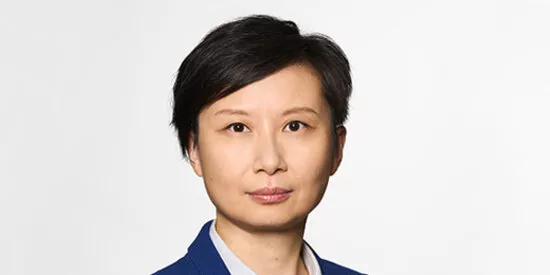
2050 Investors podcast: Societe Generale APAC Chief Economist on China’s demographic challenge
In the latest episode of our 2050 Investors podcast, Kokou Agbo-Bloua, Head of Economics, Cross-Asset & Quant Research at Societe Generale, talks to APAC Chief Economist and Head of Research Wei Yao about the implications of China’s shrinking population.
Listen now on your favourite podcast streaming app: here
The following is an edited and condensed version of their discussion.
Kokou: What are the origins of China’s ageing demographic profile?
Wei Yao: China’s efforts at population control date back to the early 1970s, well before the famous one-child policy in 1979. By the time the government relaxed the policy in 2016, it was too late. Living standards had improved and people’s willingness to have more kids had declined to the level that the policy no longer mattered. Last year, the government reported just 9 million births, half the number in 2017. China's population has been declining for two years now.
Kokou: How does China differ from other Asian economies?
Wei Yao: Low birth rates are a phenomenon across East Asia, from South Korea to Hong Kong, Taiwan and Singapore. Surprisingly, Japan's fertility rate – at 1.3 children per woman – is the highest in East Asia.
China has a much lower income level than other countries at a similar stage. When Japan’s elderly reached 15% of the population, which is China's current level, income per capita was $30,000. Korea passed that mark in 2019, with incomes over $31,000. But China is just above $11,000. If you’re an optimist, you might say China still has a lot of catching-up to do on labour productivity.
Kokou: Why should we care?
Wei Yao: Firstly, China matters for global growth. China's rapid ageing signals low and declining potential growth rates. But right now, China is performing below its potential, with high youth unemployment. The challenge is the opposite of the labour shortage one might expect from the Asian demographic. The second perspective is that China matters for global inflation, but it is not so certain how ageing affects inflation. In Japan’s case, ageing coincided with deflation for decades. But the debt deleveraging after the collapse of assets prices in the early 1990s played an equal, if not bigger, role.
It will be very interesting to see whether Japan now enters an inflationary phase. A big element in answering the inflation versus deflation question is government policy. If a country is ageing with an unsustainable fiscal trajectory, you would at some point require fiscal consolidation, which would be deflationary. China's fiscal trajectory is definitely not sustainable, but there is room to manoeuvre before it's too late.
Kokou: Will ageing make China’s net zero transition harder or easier?
Wei Yao: Elderly people have a lower carbon footprint than other age groups. But the elderly also save less, raising the issue of whether China can finance the transition. China says it needs to invest 3.5 trillion yuan (or around $490 billion) a year to achieve its net zero goal. Although there is now a gap of more than 1 trillion yuan a year and China is wrestling with property and local government debt, it is still managing to channel more to the green transition. The investment issue is a long-term challenge, but not necessarily one China will be any worse at managing than other countries.
Kokou: How can China mitigate the ageing effect?
Wei Yao: China has plenty of policy space to manage the trend. Education or upskilling is one area: almost a quarter of China’s workers have some kind of college degree, against an Organisation for Economic Co-operation and Development (OECD) average of 40%. China’s average retirement age is only 55, while life expectancy has improved to 78. The labour force participation rate for women aged 50 is less than half. Too much of China’s pension funds is invested in low and falling yields. And finally, taking inspiration from Japan: “Ageing beautifully with good health and a long, active life is both desirable and possible.”
About 2050 Investors Podcast:
Welcome to 2050 Investors – your monthly guide to understanding the intricate connections between finance, globalisation, and ESG.
Join host Kokou Agbo-Bloua, Head of Economics, Cross-Asset & Quant Research at Societe Generale, for an exploration of the economic and market megatrends shaping the present and future, and how these trends might influence our progress to meeting 2050’s challenging global sustainability targets. In each episode, Kokou deep-dives into the events impacting the economy, financial markets, the planet, and society.
For other episodes, please click here: https://insight-public.sgmarkets.com/podcasts

Societe Generale named "Americas Bank of the Year" by PFI
Societe Generale has demonstrated its leadership in project and infrastructure finance, earning several recognitions...

Why ship finance will keep steaming ahead in 2026
By Pierre Carassus, Head of Maritime Industries, Asia-Pacific at Societe Generale.

Societe Generale Appoints Wei Yao as Global Chief Economist
Societe Generale is pleased to announce the appointment of Wei Yao as Global Chief Economist for its Corporate and...

Transition finance is Asia’s opportunity to show leadership
By Tessa Dann, Head of Sustainable Finance, Asia Pacific